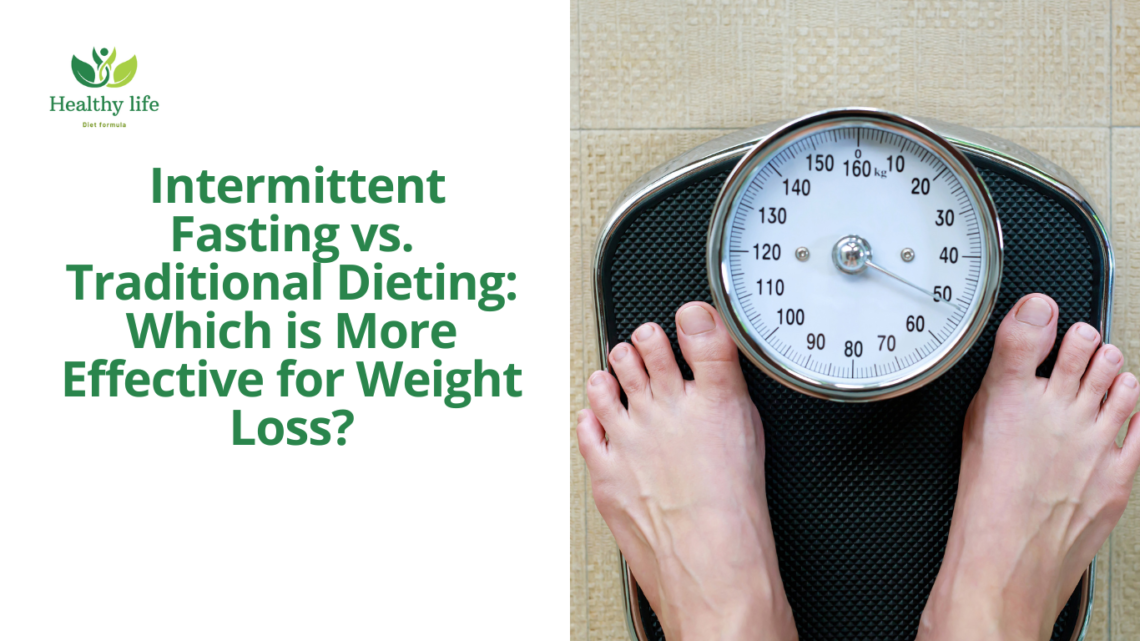
Intermittent Fasting vs. Traditional Dieting: Which is More Effective for Weight Loss?
In the quest for effective weight loss, many individuals are faced with a crucial choice: adopting intermittent fasting or following a traditional approach of calorie restriction. Both options promise results, but which is truly more effective? In this article, we’ll explore the differences between intermittent fasting and traditional dieting, examining their efficacy for weight loss and the pros and cons of each approach.
What is Intermittent Fasting? Intermittent fasting is an eating approach that alternates between periods of fasting and eating. There are various forms of intermittent fasting, including the 16/8 method, where you fast for 16 hours and eat within an 8-hour window, and the 5:2 method, where you eat normally for five days and restrict calorie intake for two non-consecutive days.
What is Traditional Dieting? Traditional dieting typically involves constant calorie restriction, where you consume fewer calories than your body burns to lose weight. This can be achieved through calorie counting, portion control, and choosing low-calorie foods.
Efficiency for Weight Loss: The efficacy of intermittent fasting and traditional dieting for weight loss has been the subject of numerous studies. Some studies suggest that intermittent fasting may be as effective as, and in some cases more effective than, traditional dieting for short-term weight loss. However, long-term, there appear to be no significant differences in weight loss between the two approaches.
Pros and Cons:
- Intermittent Fasting:
- Pros: It may be easier to follow for some individuals due to flexibility in meal timing. It may have additional health benefits, such as improved insulin sensitivity and reduced inflammation.
- Cons: It can be challenging for some people to cope with fasting periods, especially initially. It may not be suitable for everyone, especially those with certain medical conditions.
- Traditional Dieting:
- Pros: It’s a straightforward approach to weight loss. It doesn’t require drastic changes in eating habits.
- Cons: It can be difficult to maintain long-term due to constant calorie restriction. It may not offer the same health benefits as intermittent fasting.
Conclusion: Both intermittent fasting and traditional dieting can be effective approaches for weight loss, and the choice between them ultimately comes down to personal preference. It’s essential to recognize that what works for one person may not work for another, and individual factors such as lifestyle, preferences, and health considerations play a significant role in determining the most suitable approach. Whichever method you choose, consistency and adherence to the rules of each diet are key to achieving success. Remember to consult with a healthcare professional before starting any weight loss program to ensure it aligns with your health needs and goals. Ultimately, finding the right balance and approach that fits your lifestyle and supports your long-term health and well-being is paramount.

